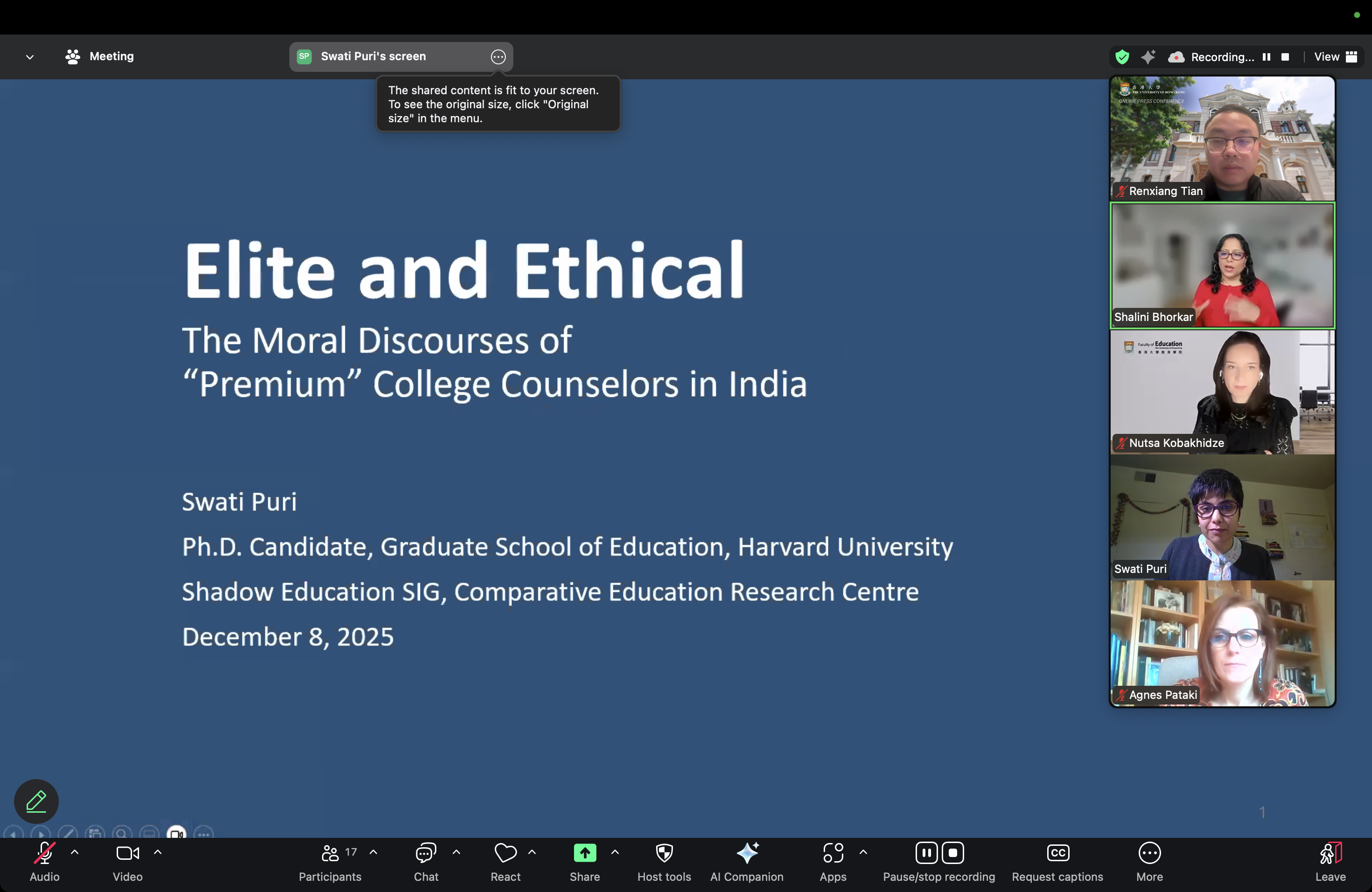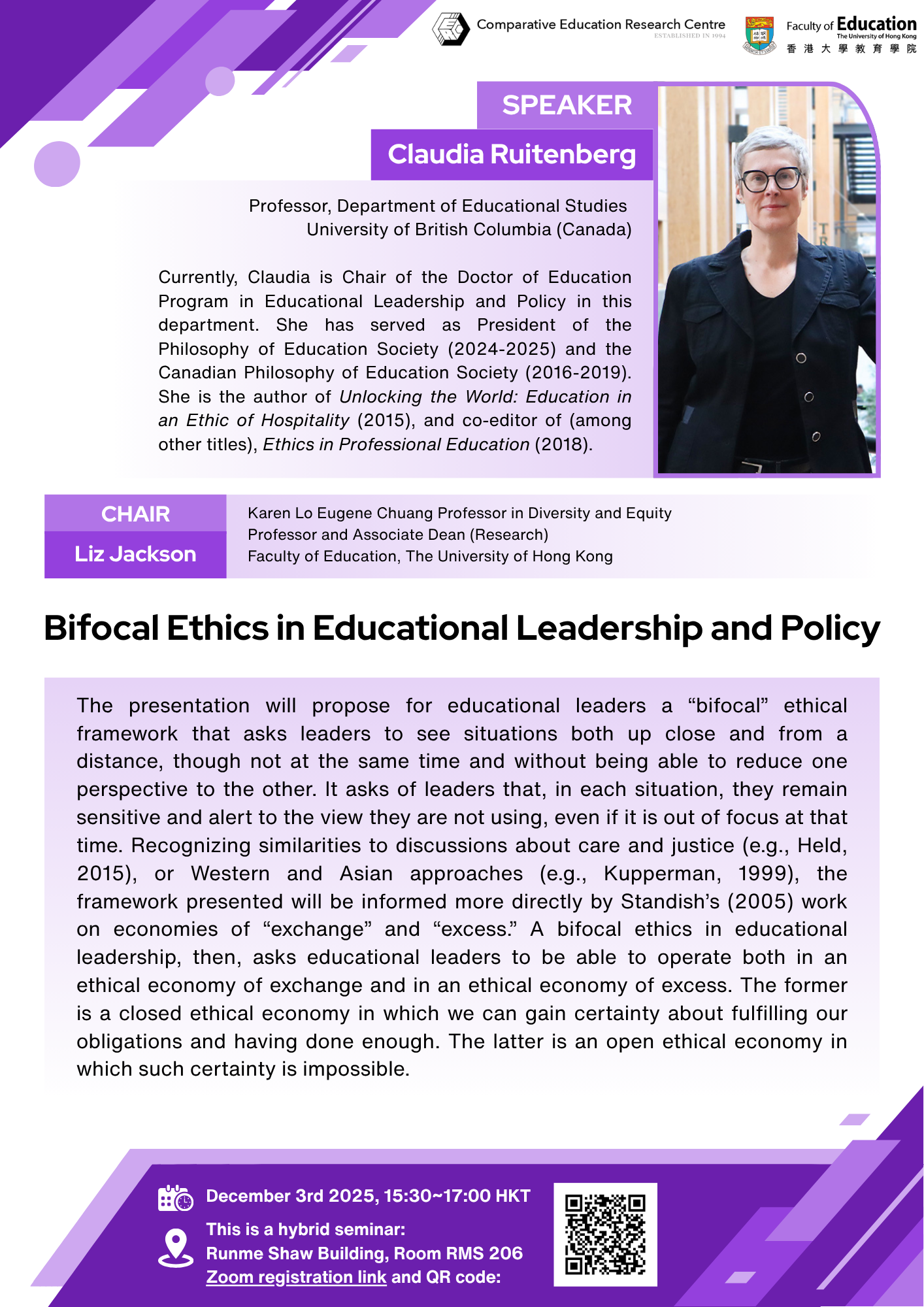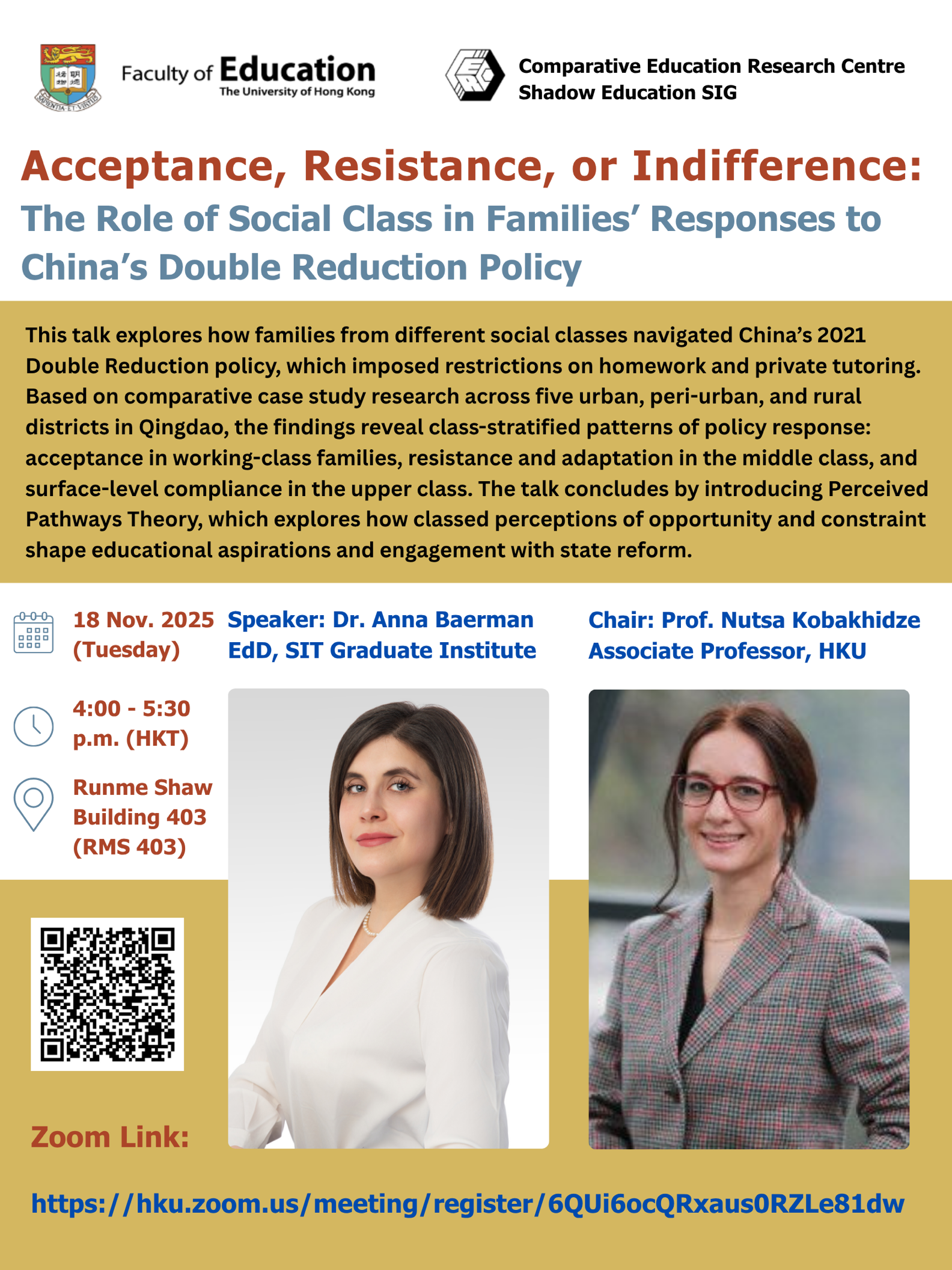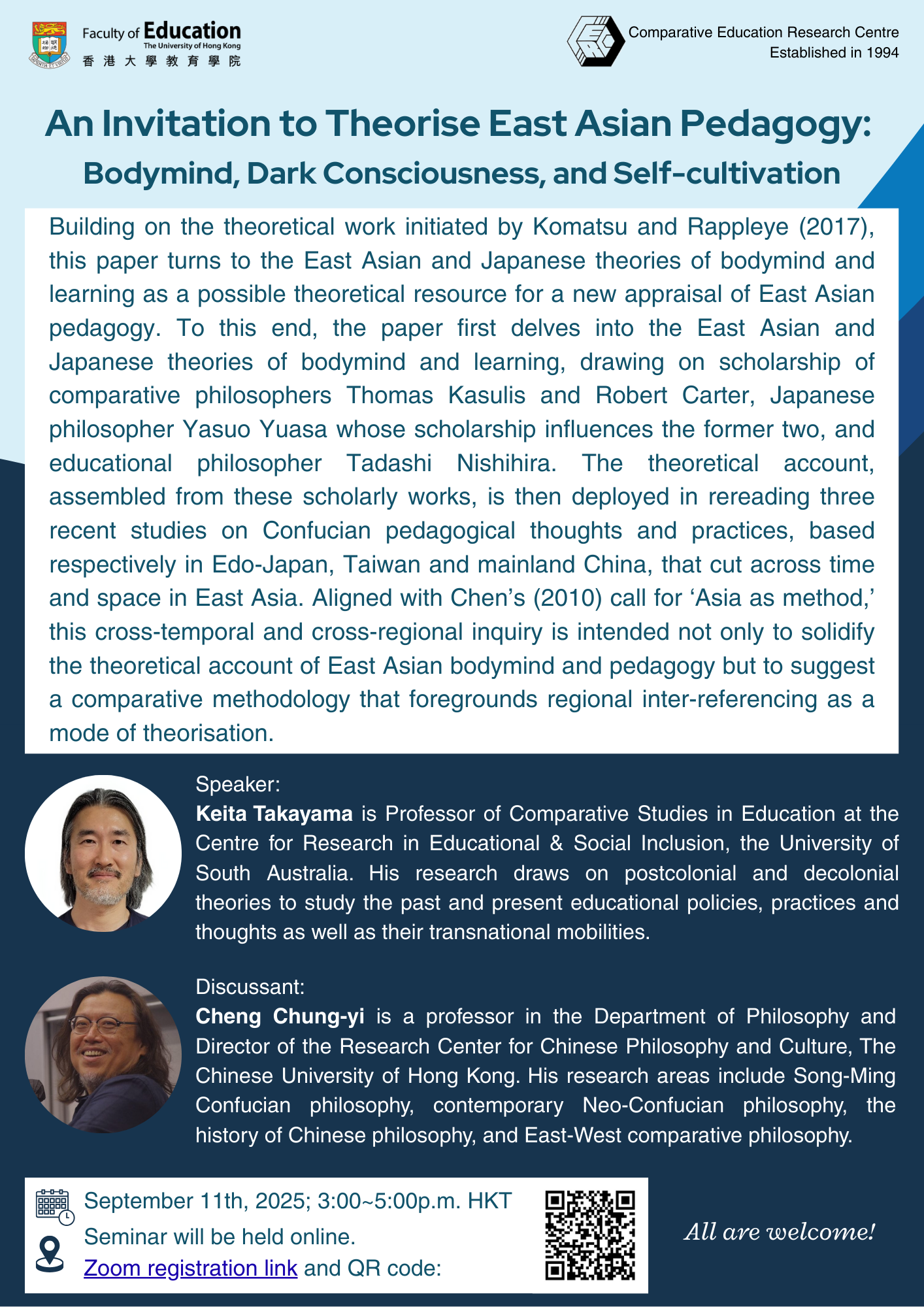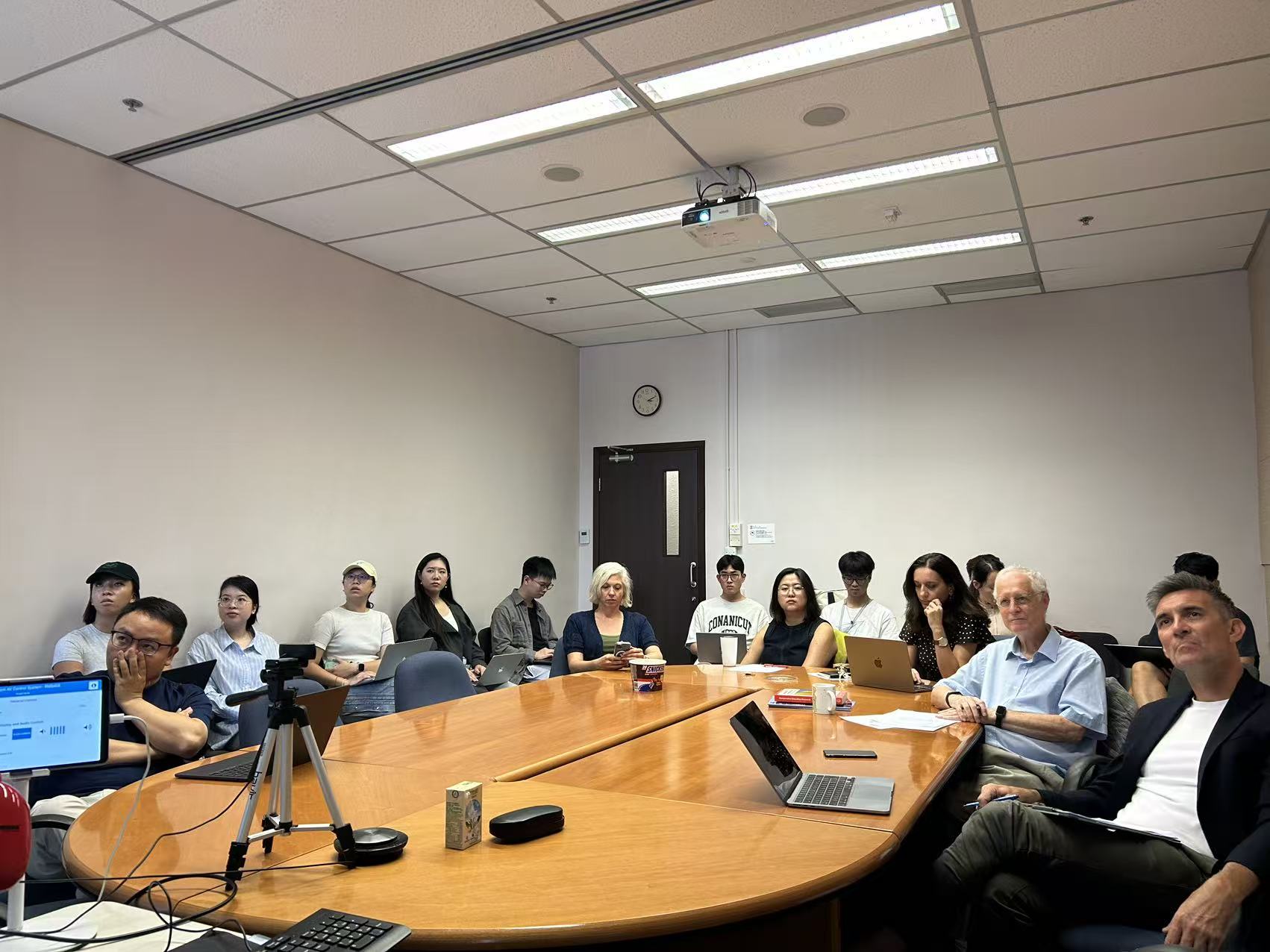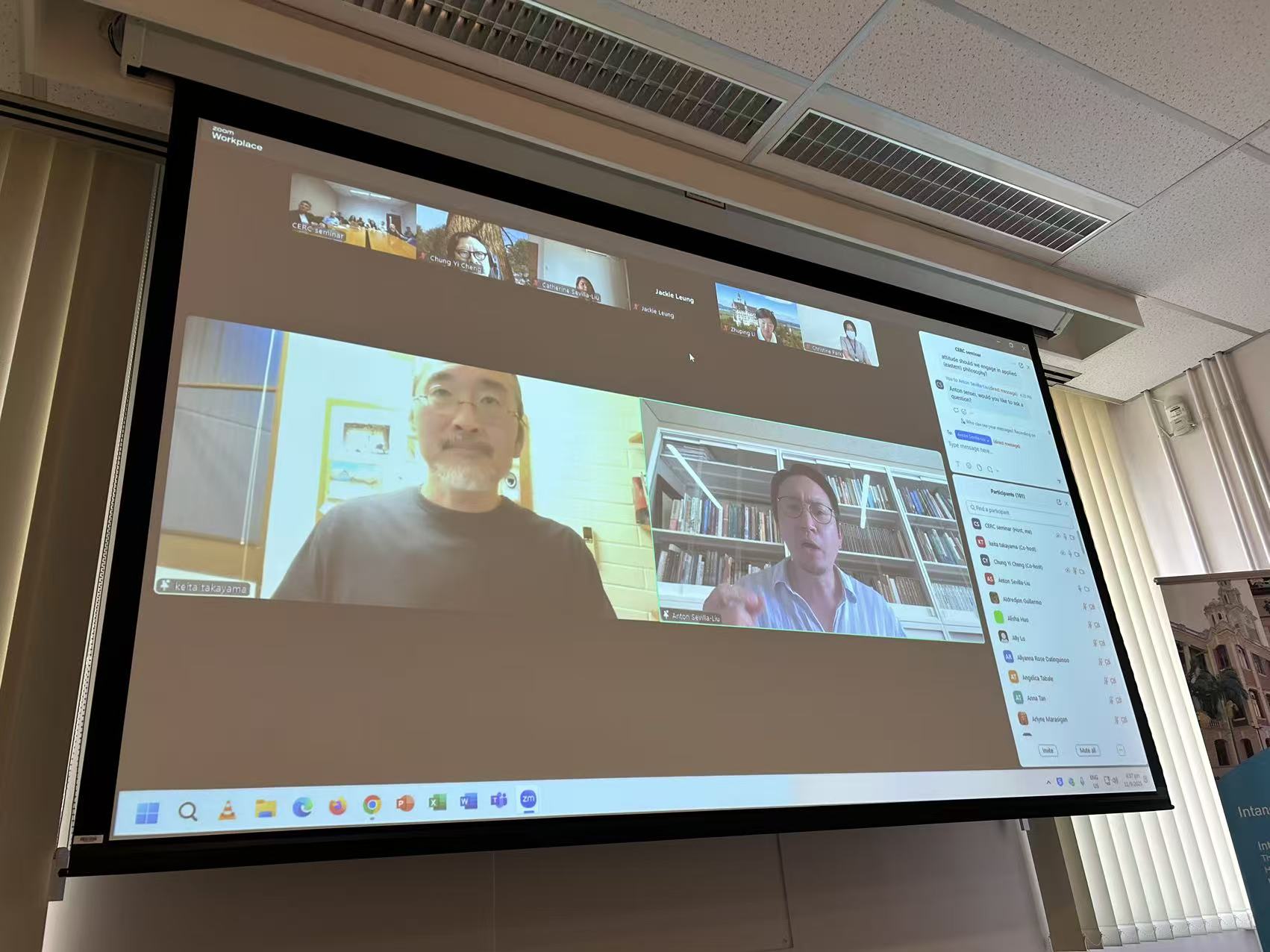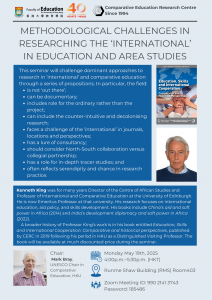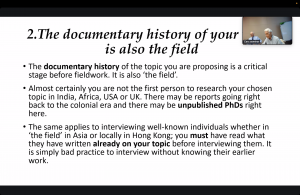On November 25 and 26, 2025, led by Dr. Ka Ya Lee, several members of the Traditions SIG Reading Group from the Comparative Education Research Centre (CERC) attended a conference titled “Envisioning Futures: Decolonial and World Philosophical Approaches.” The conference was hosted by the Department of Philosophy, the Chinese University of Hong Kong. During the two-day conference, CERC members had the opportunity to engage with African, American, Chinese, European, Indian, and South American scholars, who offered valuable and inspiring perspectives on decolonial and world philosophies. Below are some highlights from the conference and our debrief discussion.
What is philosophy?
One theme that emerged in our debrief focused on the definition of “philosophy.” On the second day of the conference and especially in the last documentary, many scholars attempted to challenge a Eurocentric way of defining philosophy. However, we also noticed the difficulty of such attempts: “if everything is philosophy, then the word, ‘philosophy’ loses its meaning.”
What counts as decolonial philosophy(-ies)?
We further compared the sessions of the two days and found the second day to be more political. Some scholars framed decoloniality (primarily) in a combative way, positioning liberation and combativeness as the key features of decoloniality. Such claims might suggest a universalistic view of what counts as decoloniality and decolonial philosophy, potentially excluding Chinese or Eastern ontology that emphasizes harmony. Should we agree on such a liberation-centered definition of decoloniality? We hope to explore framing decolonial philosophies in a more sensitive way that respects diverse philosophical commitments.
Different ways of approaching decolonial work
We further identified several types of decolonial approaches in philosophy based on the presentations across the two days (these categories were mainly proposed by Dr. Ka Ya Lee):
- Critique the Western epistemic coloniality (e.g., Professor Edwin ETIEYIBO’s keynote; Ms. Dalorina NATH), or coloniality itself (e.g., Professor Shuchen XIANG)
- Use Western epistemic resources to criticize colonialism (e.g., Fanon; Trần Đức Thảo, a Vietnamese phenomenologist introduced by Professor Hayden KEE)
- Use non-Western epistemic resources to criticize colonialism (e.g., Professor Jacob BENDER)
- Develop non-Western epistemic resources by introducing non-Western thinkers or philosophers or their concepts to the mainstream discourse. (e.g., Mr. Anish MISHRA; Professors Darlene DEMANDANTE & Kelly AGRA)
- Its variation: facilitate the “South-South” dialogue by putting two or more underrepresented or non-Western philosophers into conversation with one another (e.g., Professor Monika KIRLOSKAR-STEINBACH’s keynote).
We also discussed the metaphors of “bad cop” versus “good cop” (note: the former refers to scholars who actively engaged in the criticism of the West, while the latter refers to those who focus on dialogues within world philosophies, but we agreed that both roles share decolonial commitments). Based on the four approaches summarized above, we believed that the “good cop” is closer to the third and fourth approaches, but need not pursue non-Western philosophy solely for decolonial purposes. We can study non-Western philosophy for its own sake, yet as our contributions to underrepresented traditions accumulate, such scholarship will eventually contribute to the decolonizing of the field of philosophy.
Recurring theme #1: Challenging dualism and binaries
Another recurring theme observed across several presentations was overcoming dualistic or binary thinking. Professor Alejandro A. VALLEGA discussed the binary opposition between the colonizer and the colonized in language, challenging the dualism, which assigns passive and victimized roles to the colonized and positions the colonizer as always active. Many other presentations also echoed challenges to various binaries, such as rational versus irrational, human versus animal, mind versus body, and so on.
While identifying this recurring theme, we wondered whether dualism is always the device of colonization. Alternatively, if we consider the potential coloniality within certain non-Western traditions—which are not always rooted in dualism—then perhaps there are different devices of colonization beyond the dualistic way of thinking. We briefly compared this with the Confucian distinction between the human and the non-human, but we noted that this is not a strict dualistic concept in Confucianism, and that some Confucian scholars will not suggest that humans are superior to non-human.
Recurring theme #2: Challenging cognitivism and aesthetic universality
Another key theme we identified during the conference is a challenge to cognitivism, i.e., the idea that learning and thinking are not solely cognitive processes. Interestingly, many conference presentation styles appeared to focus primarily on cognitive reasoning, often lacking attention to embodiment. Mr. Friso Timmenga shared that cognitive thinking is actually a part of embodied knowing, as we use various parts of our bodies to process information. This suggests that learning and thinking exist on a continuum, extending beyond purely logical reasoning to encompass practices and transformative experiences.
In relation, Mr. Timmenga shared about Aesthetic Universality in the conference. In our previous understandings, aesthetic or arts education is more oriented toward a realm of experience, and in Chinese philosophy, an aesthetic “境界” (realm) might suggest the highest state of self-cultivation that is relevant to the ideal of harmony. However, in the conference sessions, the aesthetic universality is used to refer to an epistemology that is closer to sensory perception embedded in daily and mundane experience, rather than merely a theoretical state.
On the second day, the final agenda item was watching the documentary Philosophical Journeys: DRC (shared by Professor Alena Rettová). This can be seen as an example of resistance to cognitivism, as it appeals not only to our cognitive faculties but also to our essential, existential dimensions.
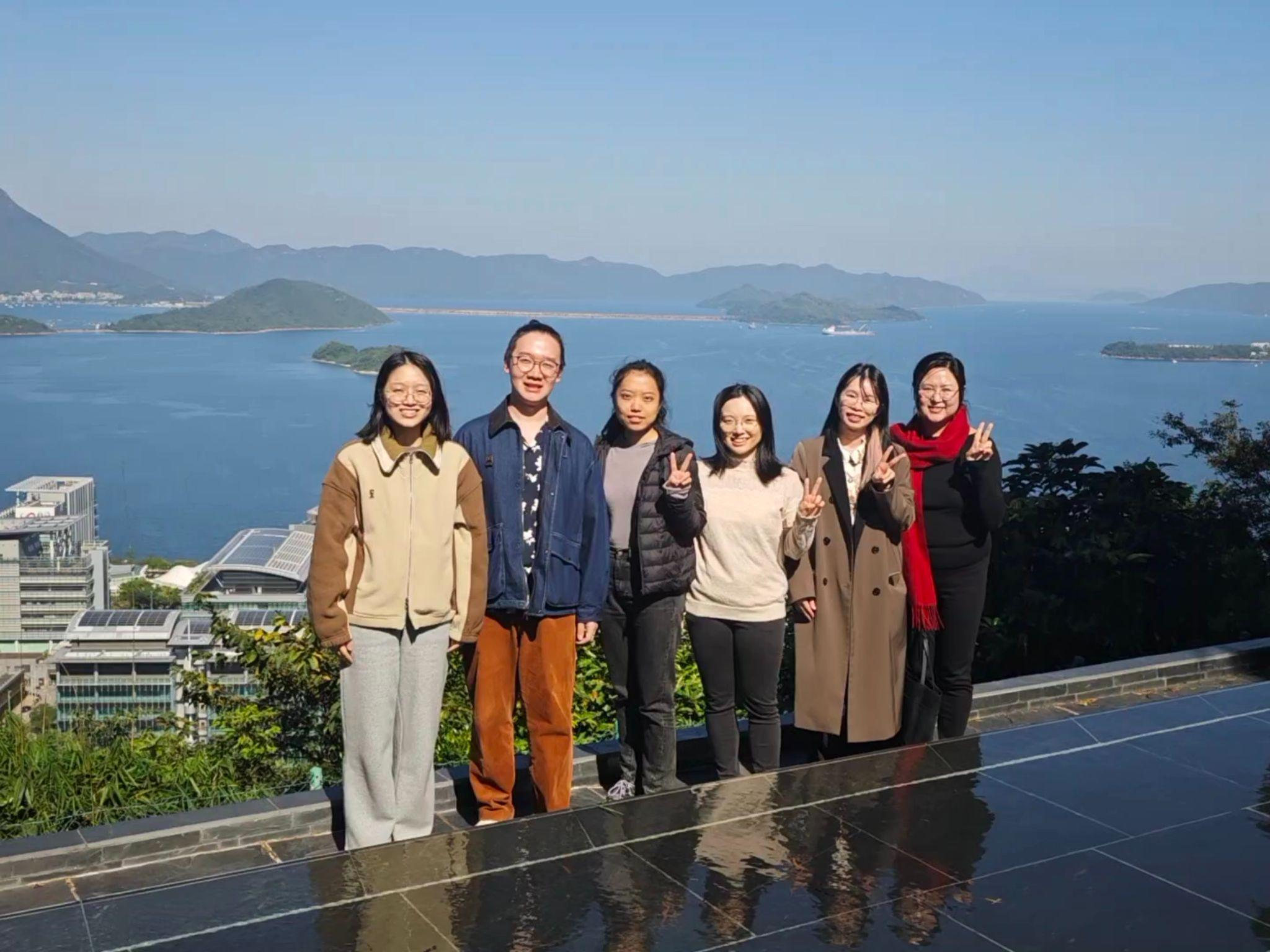
Group Picture in front of Pavilion of Harmony




